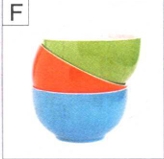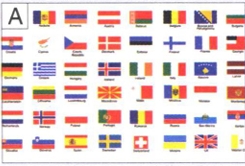顾客朋友们,为了感谢大家的支持,我们书店今天举行 “购书送好礼” 活动,购书满100元送一个笔记本,满200元送一本词典。另外,一些图书还有打折活动,其中,小说7.5折,地图8折,留学考试用书6折。如果购书满500元可免费办会员卡,以后购书可打8折。今天过生日的朋友和所有的小朋友还可以获得一份小礼物。欢迎大家选购!
19. 支持 zhīchí v. to support
20. 举行 jǔxíng v. to hold (a meeting, event, etc.)
21. 满 mǎn v. to reach a quota or limit
22. 其中 qízhōng n. among (which, them, etc.)
23. 小说 xiǎoshuō n. novel, fiction
*24. 会员卡 huìyuánkǎ n. membership card
25. 所有 suǒyǒu adj. all
26. 获得 huòdé v. to get, to obtain
人们常说 “一分钱一分货”,意思是东西的质量和价格有很大的关系,也可以说 “便宜没好货,好货不便宜”,一般情况下,你花的钱越多,买的东西也就越好。其实也不一定都是这样的。有的时候,质量很好的东西也会很便宜。例如,春天来了,冬天的衣服就会打折,质量很好,还很便宜,花很少的钱就可以买到。一到节日,商场也会举办各种各样的活动,降低价格,这个时候我们也可以买到又便宜又好的东西。
27. 情况 qíngkuàng n. situation, circumstances
28. 例如 lìrú v. for example
29. 举办 jǔbàn v. to hold, to conduct
30. 各 gè pron. various, different
31. 降低 jiàngdī v. to lower, to reduce
拼音课文 Texts in Pinyin
4
Gùkè péngyoumen, wèile gǎnxiè dàjiā de zhīchí, wǒmen shūdiàn jīntiān jǔxíng “Gòu shū sòng hǎo lǐ” huódòng, gòu shū mǎn yībǎi yuán sòng yí gè bǐjìběn, mǎn èrbǎi yuán sòng yì běn cídiǎn. Lìngwài, yìxiē túshū hái yǒu dà zhé huódòng, qízhōng, xiǎoshuō qīwǔ zhé, dìtú bā zhé, liúxué kǎoshì yòngshū liù zhé. Rúguǒ gòu shū mǎn wǔbǎi yuán kě miǎn fèi bàn hùyuánkǎ, yǐhòu gòu shū kě dǎ bā zhé. Jīntiān guò shēngrì de péngyou hé suǒyǒu de xiǎopéngyou hái kěyǐ huòdé yí fèn xiǎo lǐwù. Huānyíng dàjiā xuǎngòu!
5
Rénmen cháng shuō “yì fēn qián yì fēn huò”, yìsi shì dōngxi de zhìliàng hé jiàgé yǒu hěn dà de guānxì, yě kěyǐ shuō “piányi méi hǎo huò, hǎo huò bù piányi”, yībān qíngkuàng xia, nǐ huā de qián yuè duō, mǎi de dōngxi yě jiù yuè hǎo. Qíshí yě bù yídìng dōu shì zhèyàng de. Yǒu de shíhou, zhìliàng hěn hǎo de dōngxi yě huì hěn piányi. Lìrú, chūntiān lái le, dōngtiān de yīfu jiù huì dǎ zhé, zhìliàng hěn hǎo, hái hěn piányi, huā hěn shǎo de qián jiù kěyǐ mǎidào. Yí dào jiérì, shāngchǎng yě huì jǔbàn gè zhǒng gè yàng de huódòng, jiàngdī jiàgé, zhège shíhou wǒmen yě kěyǐ mǎidào yòu piányi yòu hǎo de dōngxi.
注释 4 其中
Notes
“其中”,名词,表示 “那个里面、那些里面” 的意思,指范围、处所。
例如:
The noun “其中” means “within that” or “among those”, indicating a scope or location. For example:
- (1)我们不仅要会读书,还要会选择其中的好书来读。
- (2)虽然妻子工作很忙,但是她忙在其中也乐在其中。
- (3)一些图书还有打折活动,其中,小说7.5折,地图8折,留学考试用书6折。
• 练一练 Practise
完成句子 Complete the sentences.
- (1)很多人能取得成功,(其中)
- (2)我有很多爱好,(其中)
- (3)虽然联系老同学聚会比较麻烦,(其中)
5 (在)……下
“(在)……下”中间的成分一般是带修饰语的双音节名词或动词,表示条件、情况。例如:
The ellipsis part in the structure “(在)……下” is usually a disyllabic noun or verb with a modifier before it, indicating a condition or situation. For example:
- 一般情况下,你花的钱越多,买的东西也就越好。
- 在冬天比较冷的情况下,吃碗热面条会让人觉得很舒服。
- 在老师和同学们的帮助下,他的汉语提高得非常快。
练一练 Practise
完成句子或对话 Complete the sentences/dialogues.
- 考试时别紧张,____________________。(在……下)
- A: 我今年已经换了三次工作了。
- B: ____________________。(……下)
- A: 游戏教学不仅让学生学到了知识,更重要的是提供了快乐的学习环境。
- B: 是啊,____________________。(在……下)
根据课文内容回答问题 Answer the questions based on the texts.
课文4:
- 书店今天有什么活动?请介绍一下。
- 怎么才能免费办会员卡?
课文5:
- “一分钱一分货”是什么意思?
- 一般什么时候商场会降价?
练习 Exercises
1 复述 Retell the dialogues.
课文1:李进的语气:
昨天晚上妻子让我陪她去超市买果汁。……
课文2:王静的语气:
今天我买了两斤西红柿,……
课文3:李进的语气:
我想买个轻一点儿的行李箱,……
2 选择合适的词语填空 Choose the proper words to fill in the blanks.
支持 打扰 皮肤 百分之 售货员
1 喂,孙阿姨吗?我是小周。不好意思这么晚____您。
2 谢谢大家这一年来对我的____和帮助,能和大家一起工作,我感到非常高兴。
3 王小姐在商场买裙子。她从试衣间出来后,____说:“您穿这条裙子有点儿大。”
4 我们调查的近七千名上班族中,有____六十四的人经常加班。
5 这种水不仅很好喝,用它来洗脸对____也很有好处,所以价格要比其他水贵一些。
轻 内 尝 满 各
6 A: 你____了吗?这次蛋糕做得怎么样?
B: 很好吃,没想到你水平提高了这么多。
7 A: 计划书你看了没?
B: 看了,____方面都介绍得挺不错。
8 A: 这个纸箱里面是酒,麻烦您搬的时候____一点儿。
B: 好的,我会注意的。
9 A: 现在买沙发,能免费送货上门吗?
B: 可以,我们三日____给您送到。
10 A: 今天购物____四百元的顾客可以免费获得一份小礼物。
B: 咱们已经买了三百八十多了,再买两双袜子就够了。
扩展 Expansion
同字词 Words with the Same Character
其:其次、其中、其实、其他、尤其
(1) A: 能谈谈你为什么会选择这份工作吗?
B: 首先,我对这份工作很感兴趣,其次,我学的也是这个专业,比较熟悉。
(2) 这个电影讲的是一个浪漫的爱情故事,但是我觉得其中人与动物之间的友谊更感人,给我的印象更深。
(3) 生活中有这样两种人:一种总是看别人怎么生活,另一种喜欢生活给别人看。其实,各人有各人的生活,不用羡慕别人。
(4) A:饭店的工作,我想请你来负责,你看有问题没?
B: 对不起,我最近在忙另一件事,您还是考虑其他人吧。
(5) 不管做什么事情,都要注意方法,学习尤其是这样。如果方法对了,就会取得很好的效果;如果方法错了,不管你怎么努力,也很难取得成功。
● 做一做 Drills
选词填空 Fill in the blanks with the words given.
其次 其中 其实 其他 尤其
- 小时候,大家都说我长得像我妈,____是眼睛和鼻子。
- 他和弟弟虽然是同一天出生的,但是他们俩除了长得很像外,几乎再找不到____共同点。
- 为了找到最美丽的地方,有些人总是不停地去找,却从不注意身边的地方。____,如果他能停下来,也许就会发现最美的地方就在身边。
- 大学生毕业前找工作时,首先,要知道自己想干什么;____,还要知道自己能干什么。
- 8小时内,共有1620个女人经过这面镜子,____1/3的人花很短的时间看镜子中的自己;而经过镜子的600个男人,差不多每个人都会照镜子,大多数还会看看四周,看有没有被人注意。
运用 Application
1 双人活动 Pair Work
互相了解对方的购物习惯,完成调查表。
Learn about each other’s shopping habits and complete the questionnaire below.
| 问 | 答 |
|---|---|
| 1 你会货比三家吗? | |
| 2 你喜欢自己选还是售货员为你介绍? | |
| 3 你只看自己想买的吗? | |
| 4 你相信 “一分钱一分货” 吗? 为什么? | |
| 5 你喜欢 “购物送好礼” 还是打折活动? | |
| 6 价格、服务、质量,哪个最重要? 为什么? |
2 小组活动 Group Work
向小组成员说说你的购物习惯。可以是自己的,也可以是朋友的。(请最少用四个下面的结构)
Tell your group members about your own shopping habits or the shopping habits of your friend’s. (Use at least four of the following structures.)
a. 售货员热情地为我介绍
b. 不希望被别人打扰
c. 从价格方面看
d. 从质量上看
e. 值得考虑
f. 负责免费修理
g. 免费办会员卡
h. 一分钱一分货

文化 CULTURE
绿色食品 Green Food
绿色食品主要是指那种在整个生产过程中都没有污染的、食用安全的食品。中国的第一批绿色食品是在1990年北京亚运会期间上市的。它一出现就受到了广大市民的欢迎。绿色食品的价格一般高于普通食品,但是绿色食品对身体有好处,而且对于保护环境有着巨大的意义。
Green food refers to the food which has been produced through a process free of any pollution and is safe to eat. The first batch of green food was put into market during the 1990 Asian Games in Beijing. It immediately earned popularity among the citizens. Though the prices of green food are generally higher than those of ordinary food, green food is good for our health and has great significance to the protection of the environment.









































